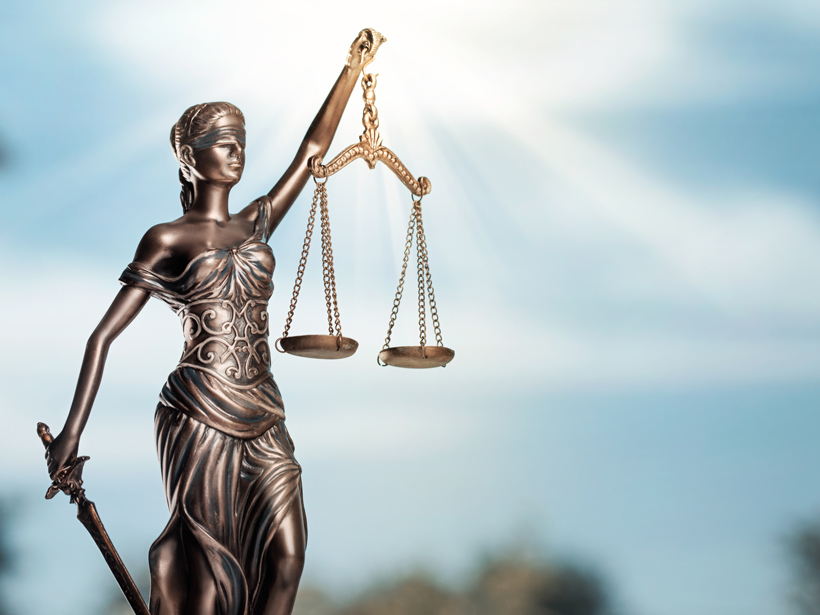A Stanford University scientist who sued the author and publisher of a paper that criticized his work and claimed it contained errors has dropped the suit. Mark Z. Jacobson, who had asked for $10 million in damages and the full retraction of the critical paper, announced the decision on Twitter yesterday, saying he had succeeded in airing his concerns.
“After much deliberation and having brought to light the corrections of fact required in the Clack paper, I have decided to move on and voluntarily dismiss the lawsuit,” Jacobson wrote, addressing his tweet to “friends & critics.”
Dear friends & critics, After much deliberation and having brought to light the corrections of fact required in the Clack paper, I have decided to move on and voluntarily dismiss the lawsuit. Details of the reasons why and the basis for the suit are here: https://t.co/HRSvt22HJZ
— Mark Z. Jacobson (@mzjacobson) February 22, 2018
Attorneys for Christopher Clack, lead author of the critical paper, noted that Jacobson’s decision came after a hearing on Tuesday in Washington, D. C., Superior Court on a motion to dismiss the suit under the District of Columbia’s “Anti-SLAPP” legislation—a law meant to protect free speech from lawsuits intended to silence or censor criticism.
“No doubt Dr. Jacobson based his decision on the high probability that his lawsuit would be dismissed,” said attorneys representing a defendant.
“No doubt Dr. Jacobson based his decision on the high probability that his lawsuit would be dismissed,” attorneys who represent Clack, Drew Marrocco, and Clinton Vince, said in a joint statement.
The National Academy of Sciences, which as publisher of the journal the Proceedings of the National Academy of Sciences of the United States of America (PNAS), was a defendant in the lawsuit, will not make a statement, said Jennifer Walsh, director of media relations for the National Academies of Sciences, Engineering, and Medicine.
Correcting the Record
The case centers around a PNAS paper that Jacobson and three coauthors published in December 2015 asserting that a low-cost electrical grid based on 100% renewable wind, water, and solar energy was possible. Clack, then with the National Oceanic and Atmospheric Administration’s Earth System Research Laboratory in Boulder, Colo., and 20 coauthors responded in June 2017 with a PNAS article that exhaustively examined Jacobson’s arguments and stated that his claims were based on modeling errors. Jacobson sued PNAS and Clack for defamation in September 2017.
In a longer statement Jacobson posted Thursday on a Stanford website, he denies that he filed the suit because he disagreed with the scientific opinions in Clack’s paper. Instead, he contends that the paper contained false statements that the journal refused to correct and that those falsehoods had damaged his reputation as a scientist.
He also said that he had previously offered to settle the lawsuit at no cost if PNAS would publish factual corrections.
Costly Litigation
“It became clear…that it is possible there could be no end to this case for years, and both the time and cost would be enormous,” Jacobson wrote.
Addressing why he chose to drop the suit now, Jacobson pointed to a 2012 suit filed by climate scientist Michael Mann against the National Review and others over a blog post critical of his work. “It became clear, just like in the Mann case, which has been going on for 6 years, that it is possible there could be no end to this case for years, and both the time and cost would be enormous,” Jacobson wrote in the statement on the website.
In addition, he said, a primary reason for bringing the suit was to correct the record and remove misinformation that had damaged his reputation. Although he had not succeeded in getting a correction or retraction in the scientific literature, he said, “I have brought the false claims to light so that at least some people reading [the Clack paper] will be aware of the factually inaccurate statements.”
The lawsuit may already have had an effect on the scientific debate, said attorney Kenneth White, who was not involved in the case.
Kenneth White, a Los Angeles attorney who litigates First Amendment cases and who is not involved in the suit, said it was noteworthy that Jacobson cited the Mann case in his comments. “It’s been in limbo for an extraordinarily long time, and it just goes to show how this type of lawsuit can chill speech for years,” he said.
Even though Jacobson dropped his court action, White added that the lawsuit may already have had an effect on the scientific debate. “Think of whether or not these scientists or anyone else thinks it’s safe to question or criticize this guy’s work, or in the future how people will go about engaging in peer review of his work,” White said.
—Ilima Loomis (email: [email protected]), Freelance Journalist
Citation:
Loomis, I. (2018), Stanford scientist drops $10 million lawsuit over critical paper, Eos, 99, https://doi.org/10.1029/2018EO093795. Published on 23 February 2018.
Text © 2018. The authors. CC BY-NC-ND 3.0
Except where otherwise noted, images are subject to copyright. Any reuse without express permission from the copyright owner is prohibited.

